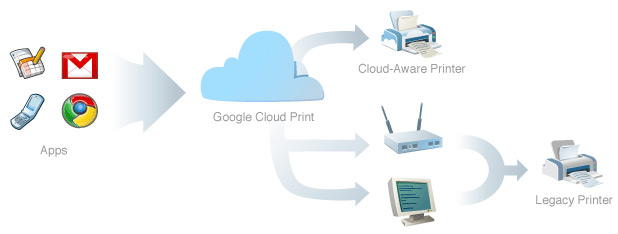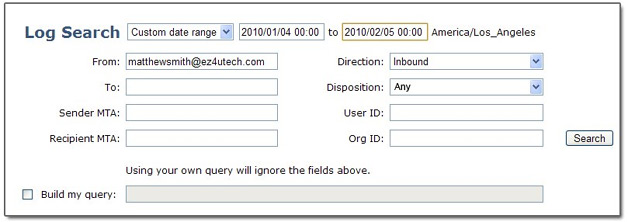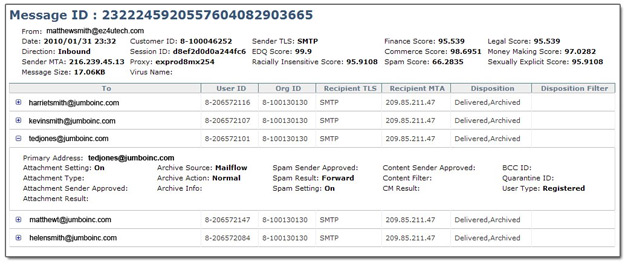Back in November, Salesforce announced its Chatter product, which it referred to as Facebook for the Enterprise. It launched in private beta in February, and now Chatter is set to become integral to the very core of what Salesforce has to offer. I spoke with Kraig Swensrud, senior vice president, product marketing at Salesforce.com ahead of the announcement, who tells WebProNews, "Chatter is at the center of our entire strategy moving forward."
Cloud 2
Swensrud explained this concept of "Cloud 2", which is an internal term the company has been using, and basically refers to the next generation of cloud computing, which stems from the rise in general social media use and mobile/smartphone use, where people are accessing the Internet more from their pocket, as opposed to their desktop. Salesforce sees its strategy as "accelerating the market shift" to Cloud 2, which it says is "inherently social, collaborative and delivers real-time access to data and information across new mobile devices."
Swensrud tells us that since the company formed in 1999, they’ve been taking many of the leading trends on the web and applying them to the enterprise. Chatter is simply an extension of this. In fact, Swensrud says the company’s mantra now is along the lines of "Why doesn’t all enterprise software work like Facebook?"
Milestone
One announcement Salesforce is making today is that Chatter has achieved a new milestone of 500 companies in its private beta, with another 1,000 companies on the waiting list, and it will be coming to all customers later this year.
With the Force.com platform, users began using Facebook-style collaboration technology, Swensrud says, and users started thinking, "why don’t we have the same-style collaboration in all business apps – not just CRM app – basically, anything that runs inside of a company?"
That’s why Salesforce is allowing companies to build Cloud 2 apps with Force.com, Swensrud says. It will run all over the web and have all the features of Chatter. Companies can "Chatterize" any app they build with Force.com – Cloud 2 apps.
20 companies are going live with such apps right away.
AppExchange2 and ChatterExchange
Salesforce today is also introducing AppExchange2, a new version of its market place for cloud business apps, with a new category of social enterprise apps – the ChatterExchange, which will include the apps from the 20 companies and others that get built in the future. This can be found at appexchange.com/chatter
Service Cloud Goes Chatter
A big part of Salesforce’s announcement is that Salesforce.com’s Service Cloud 2 is going Social with Chatter. The company has extended the Chatter private beta to more than 250 Service Cloud 2 customers. Salesforce says that in combining the Service Cloud and Chatter, companies can boost productivity gains by empowering service agents with new capabilities for:
– Monitoring Priority Cases: Service agents can stay on top of high priority cases, updates to critical knowledge articles, and the latest product updates
– Locating Expertise: Service agents can follow experts across their organization and instantly get help from other agents, other departments, or from across the company
– Real-Time Case Collaboration: For high priority cases, service supervisors can assemble the best expertise and information to close complex cases faster
– SLA Management: Salesforce Chatter proactively can alert service agents of upcoming service level agreement milestones that they must meet
– Sales-Service Alignment: Service agents and sales reps can share the latest case and opportunity updates for their customer to ensure good service means good business
Swensrud says the companies in this private beta range in all sizes and across industries, with the largest being in the Fortune 500. ServiceCloud2, he says allows companies to not only communicate with customers via social networks and search engines, but when they receive customer inquiries, they can now use Chatter to work with all the departments within the company to sort things out.
Salesforce Chatter will be included in all paid editions of Salesforce CRM and Force.com. Service Cloud 2 is available now and pricing starts at $65 per user per month. AppExchange 2 and ChatterExchange are live today, and customers should contact partners for pricing and availability of their applications.
 "Modern scientific computation requires ever increasing storage and processing power delivered on-demand" said Chris Kemp, NASA’s Chief Technology Officer for IT. "To serve this demand, we built Nebula, an infrastructure cloud platform designed to meet the needs of our scientific and engineering community. NASA and Rackspace are uniquely positioned to drive this initiative based on our experience in building large scale cloud platforms and our desire to embrace open source"
"Modern scientific computation requires ever increasing storage and processing power delivered on-demand" said Chris Kemp, NASA’s Chief Technology Officer for IT. "To serve this demand, we built Nebula, an infrastructure cloud platform designed to meet the needs of our scientific and engineering community. NASA and Rackspace are uniquely positioned to drive this initiative based on our experience in building large scale cloud platforms and our desire to embrace open source" A lot of irritated iPhone 4 owners are calling for the company to issue a
A lot of irritated iPhone 4 owners are calling for the company to issue a 
 First, cloud computing can provide improved security. Under legacy computing models, data is stored on local computers – this is the equivalent of keeping cash under your mattress. Storing data securely in the cloud is like keeping cash in a bank. (To learn more, check out our
First, cloud computing can provide improved security. Under legacy computing models, data is stored on local computers – this is the equivalent of keeping cash under your mattress. Storing data securely in the cloud is like keeping cash in a bank. (To learn more, check out our  Yahoo says Hadoop plays a key role in its home page, Yahoo Search, Yahoo Mail, and other properties.
Yahoo says Hadoop plays a key role in its home page, Yahoo Search, Yahoo Mail, and other properties.


 Elop was speaking at a Microsoft event in Amsterdam when, according to
Elop was speaking at a Microsoft event in Amsterdam when, according to  "Moving to the cloud allows us to provide better service at lower costs. hope this development will inspire other government entities to accelerate their own efforts. The American taxpayers would be the winners.”
"Moving to the cloud allows us to provide better service at lower costs. hope this development will inspire other government entities to accelerate their own efforts. The American taxpayers would be the winners.”

